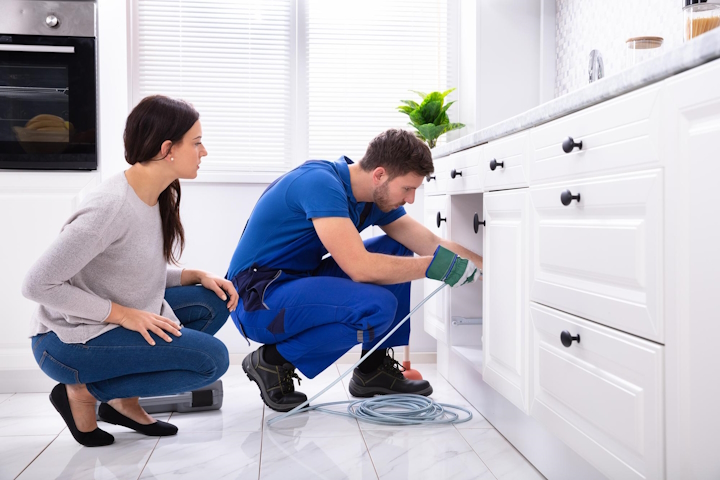
Regular plumbing maintenance is an integral aspect of home care that often goes overlooked. Maintaining a functioning plumbing system can significantly impact your household's finances. Unexpected plumbing repairs can be costly, disrupting both daily routines and budgets. By being proactive with plumbing upkeep, not only can households avoid hefty bills, but they can also extend the lifespan of their plumbing systems. This article will guide readers through essential tips and practices to keep their plumbing in top shape and avoid unnecessary expenses.
Regular Inspection and Maintenance
Scheduling periodic professional plumbing inspections is a fundamental step in maintaining a well-functioning plumbing system. Regular inspections can help identify potential issues before they become major problems, ensuring that your plumbing system remains efficient.
A comprehensive checklist of plumbing components to inspect includes pipes, faucets, drains, and other fixtures. Pipes should be checked for leaks or corrosion, while faucets need inspection for drips and proper operation. Drains should be observed for any signs of clogging or slow drainage.
Early signs of leaks or corrosion can be identified by looking for discoloured walls or ceilings, musty odours, or unusually high water bills. Catching these issues early can prevent more severe damage and save money in the long run.
Regular maintenance plays a pivotal role in preventing major plumbing issues. By addressing minor issues promptly, households can avert the need for costly repairs and maintain a smoothly running plumbing system.
Proper Pipe Care and Preventive Measures
In cold climates, protecting pipes from freezing is crucial. Pipes can be insulated using foam sleeves or wrapping them in heat tape. It's beneficial to keep the thermostat at a consistent temperature during the winter months to prevent pipes from freezing and bursting.
Using safe chemicals is another critical measure to avoid pipe damage. Avoid pouring harsh chemicals and grease down the drains as these can corrode pipes and cause blockages. Instead, opt for eco-friendly and enzyme-based cleaning products for regular maintenance.
Insulating exposed pipes is essential, especially those located in unheated areas like basements or crawlspaces. Proper insulation can prevent heat loss and significantly reduce the risk of pipe bursts.
Preventing clogs and buildup in drains is also vital. Use strainers to catch debris before they enter the drain. Regularly clean these strainers to maintain optimal drainage. Additionally, avoid flushing non-degradable items down the toilet, as they can lead to serious blockages.
Efficient Water Heater Management
Water heaters require regular maintenance to ensure efficient operation. One important task is to flush the water heater annually to remove sediment buildup, which can affect the heater's performance and lifespan. Checking the anode rod in the water heater is also advisable, as this component helps prevent tank corrosion.
Insulating the water heater and surrounding pipes can reduce heat loss and improve efficiency. This simple step can help maintain a consistent water temperature and reduce energy costs.
Setting the right temperature for the water heater is crucial to prevent overheating. The ideal temperature setting is typically around 50-60 degrees Celsius. Not only does this conserve energy, but it also reduces the risk of scalding.
It's important to watch for signs of potential water heater issues, such as unusual noises, water leakage around the unit, or inconsistent water temperatures. If any of these signs are present, it may be time to call a professional for an inspection and possible repair.
Drain and Sewer Maintenance
Maintaining garbage disposals properly is essential to prevent blockages and extend their lifespan. Regularly run cold water while using the disposal and avoid putting fibrous or starchy waste down the disposal, as these can cause clogs.
Certain items should never be put down drains to prevent blockages. Avoid pouring grease, coffee grounds, and large food particles down the sink. Dispose of these items in the trash or compost bin instead.
Using enzyme-based cleaners can be an effective way to keep drains clear. These cleaners break down organic matter and can help maintain free-flowing drains without the harsh effects of chemical cleaners.
Professional sewer line inspection and cleaning should not be overlooked. Regular inspections can detect issues such as tree root infiltration or sewer line cracks before they become significant problems. Professional cleaning can also remove buildup and ensure proper drainage.
Early Detection and Quick Repairs
Using water meters to identify hidden leaks is a reliable method for early detection. By turning off all water fixtures and observing the meter, any movement indicates a hidden leak that requires attention.
Fixing small leaks promptly is vital to prevent more significant issues. A dripping faucet or a minor pipe leak might seem insignificant but can lead to considerable water wastage and higher utility bills over time.
Repairing dripping faucets and running toilets should be done without delay. These issues not only waste water but can also cause water damage over time. Replacing worn-out parts or seals can usually resolve these problems.
Mould and water damage from slow leaks can have serious implications for home health and structural integrity. Ensuring that all leaks are addressed quickly can prevent mould growth and water damage, preserving the home's value and safety.
Conclusion
In summary, regular plumbing maintenance is crucial in preventing unexpected repair costs and ensuring an efficient plumbing system. Implementing these tips can help households avoid costly repairs and maintain a smoothly functioning plumbing system. Proactive plumbing care offers long-term benefits, keeping homes safe, efficient, and free from the stress of sudden repairs. Scheduling a professional plumbing check-up can be a wise step towards achieving these goals, ensuring peace of mind and a well-maintained home. Using quality plumbing supplies can also contribute greatly to the longevity and reliability of a home's plumbing system.
| < Prev | Next > |
|---|





